Critical thinking development Science Worksheets for Ages 7-9
6 filtered results
-
From - To
Boost your child’s critical thinking skills with our engaging Science Worksheets for Ages 7-9 from Kids Academy! Designed specifically for young learners, these worksheets blend fun and education to enhance key learning skills. Explore a wide range of activities that stimulate analytical thinking, problem-solving, and reasoning. Each worksheet challenges your child to make observations, draw conclusions, and think scientifically. Perfect for home or classroom use, our printable resources make learning enjoyable and effective. Help your child develop crucial cognitive abilities while exploring fascinating science topics. Start their journey to becoming critical thinkers today with Kids Academy!
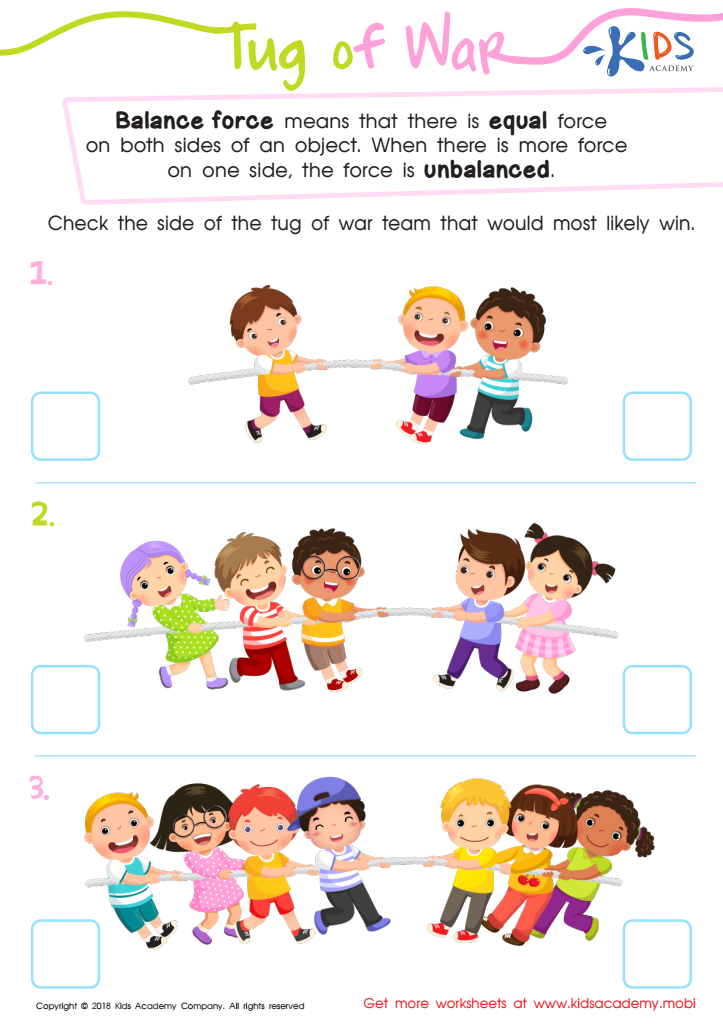

Balanced Forces Worksheet
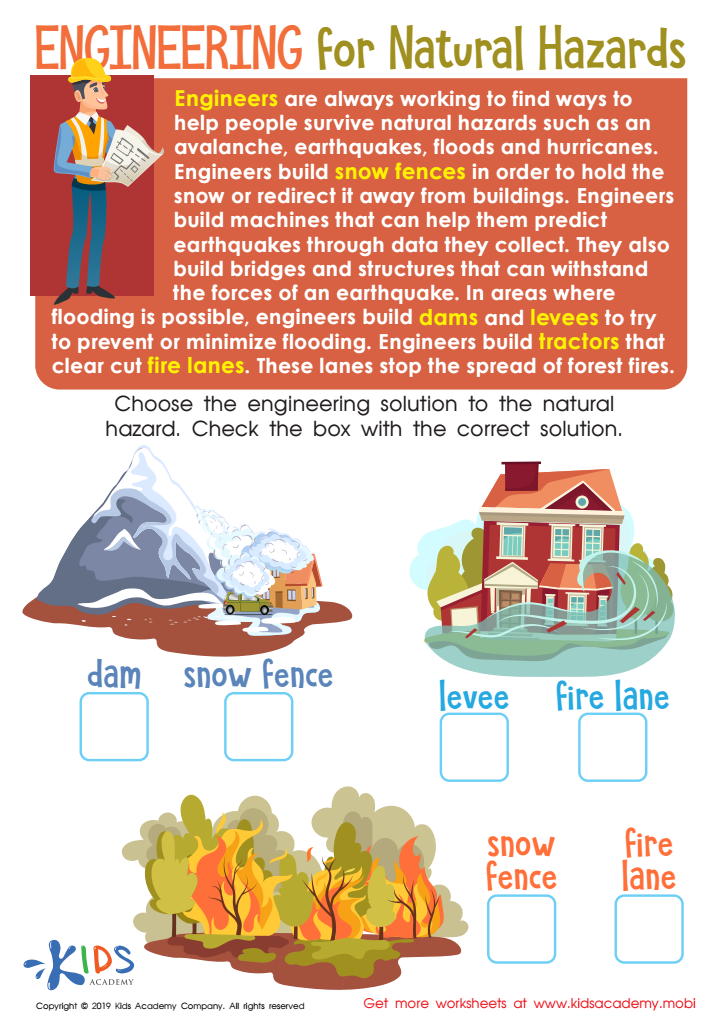

Engineering Natural Hazards Worksheet
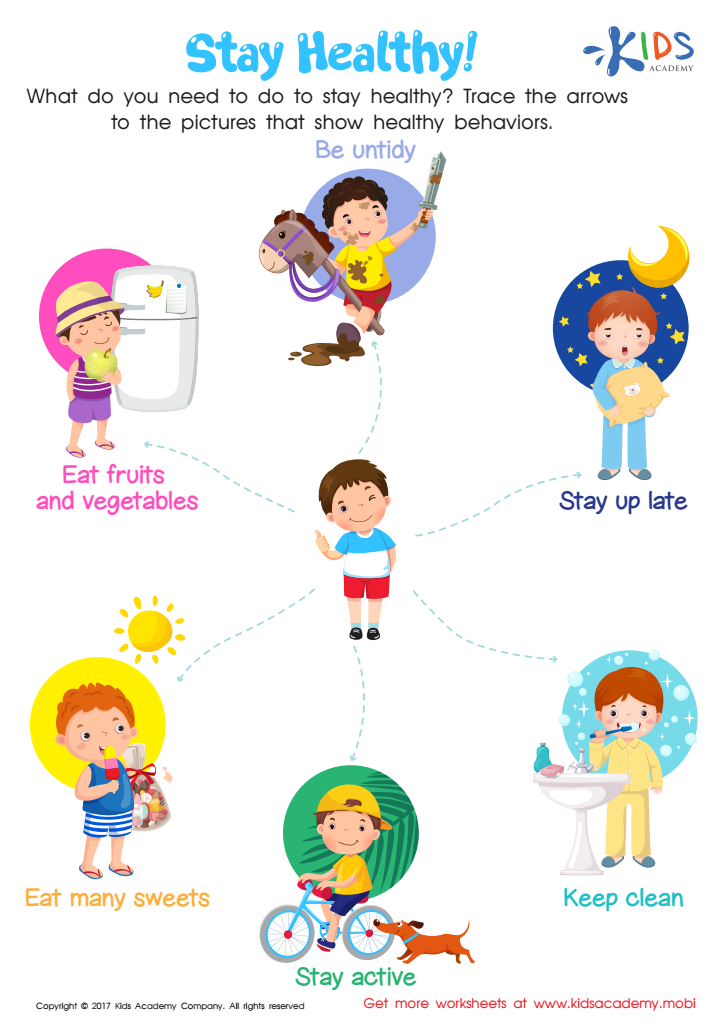

Healthy and Unhealthy Behaviors Worksheet
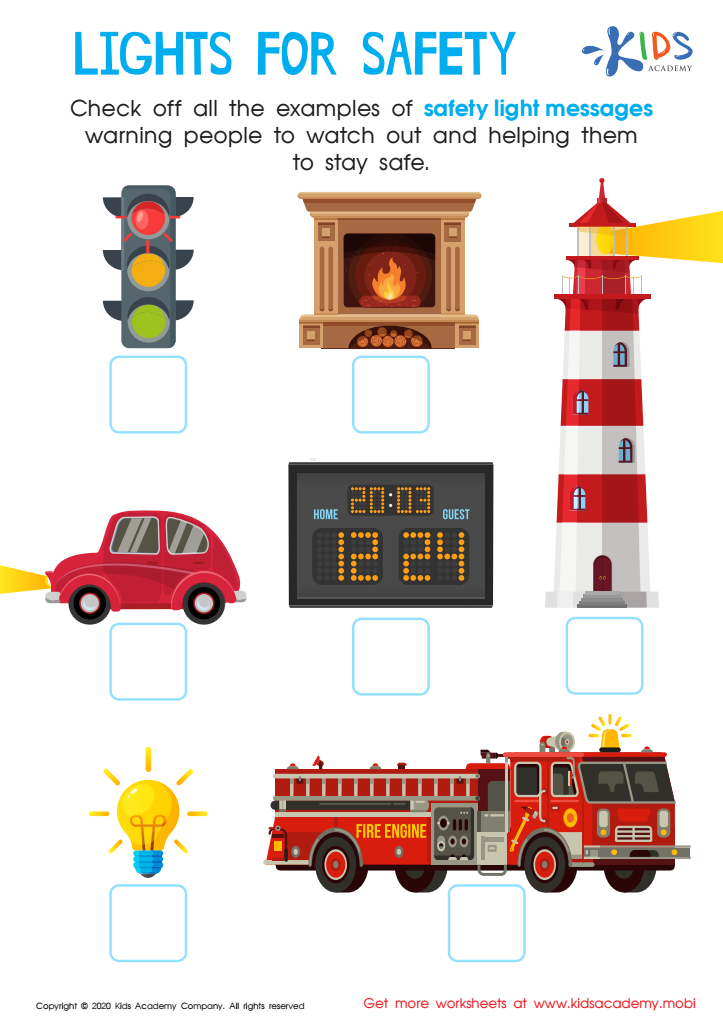

Lights for Safety Worksheet
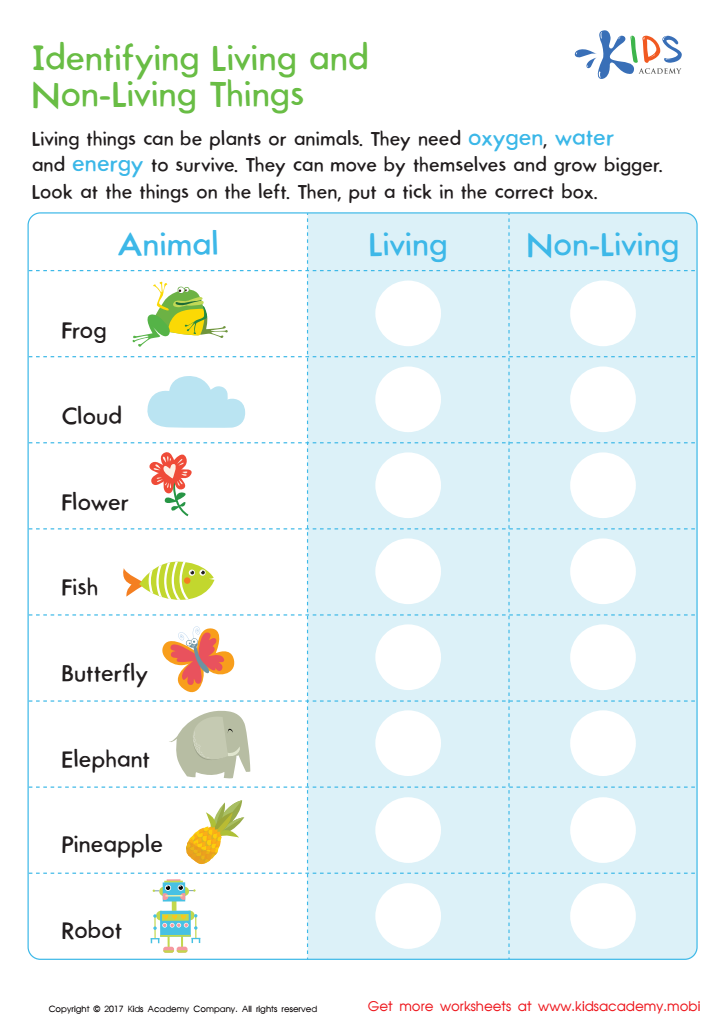

Identifying Living or Non–living Worksheet
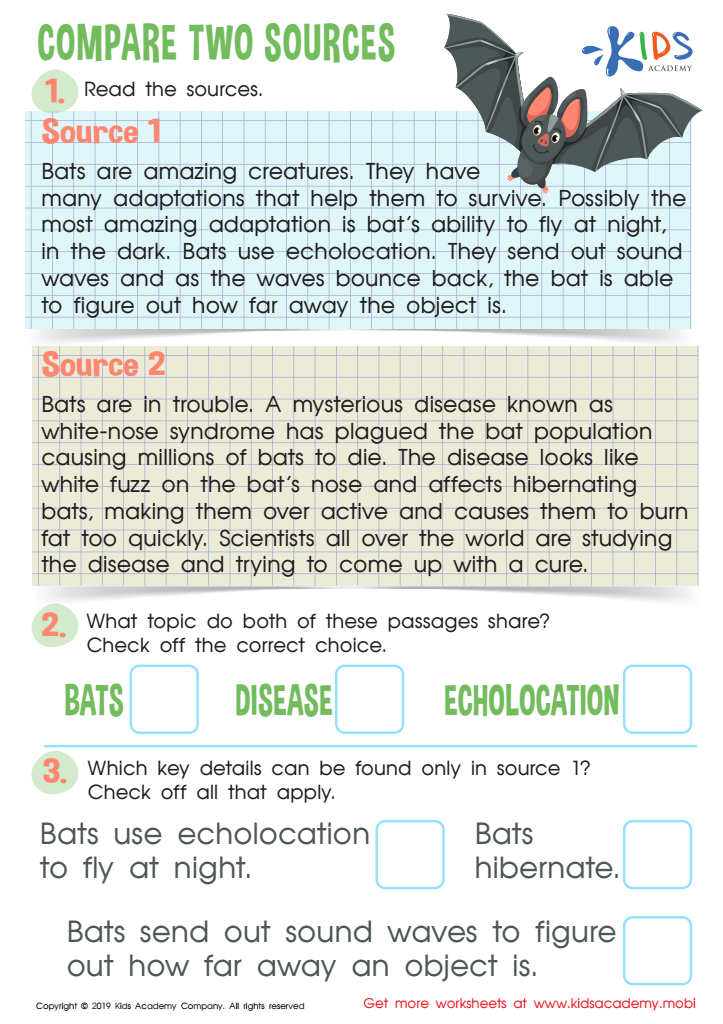

Compare Two Sources Worksheet
Critical thinking is a crucial skill for children ages 7-9 as it lays the foundation for lifelong learning and problem-solving. Encouraging the development of critical thinking in science not only enhances children's understanding of scientific concepts but also equips them with essential tools to question, evaluate, and analyze the world around them.
Firstly, critical thinking in science helps children move beyond rote memorization. Instead of simply recalling facts, they learn to understand the processes and reasonings that underpin scientific phenomena. This depth of understanding fosters curiosity and a love for learning, essential traits for academic success.
Secondly, early exposure to critical thinking skills helps children become more independent learners. They learn to formulate questions, seek out information, assess data reliability, and draw meaningful conclusions. These skills are transferable across various subjects, promoting overall cognitive development.
Additionally, the ability to think critically empowers children in everyday decision-making. Whether it's distinguishing between reliable and unreliable information, solving practical problems, or making healthy choices, the benefits extend far beyond science class.
For parents and teachers, nurturing these skills means investing in a child's future ability to navigate a complex, information-rich world. Integrating critical thinking into early science education ensures that young learners are not just passive recipients of information but active, analytical participants in their own educational journeys.

 Assign to My Students
Assign to My Students





















